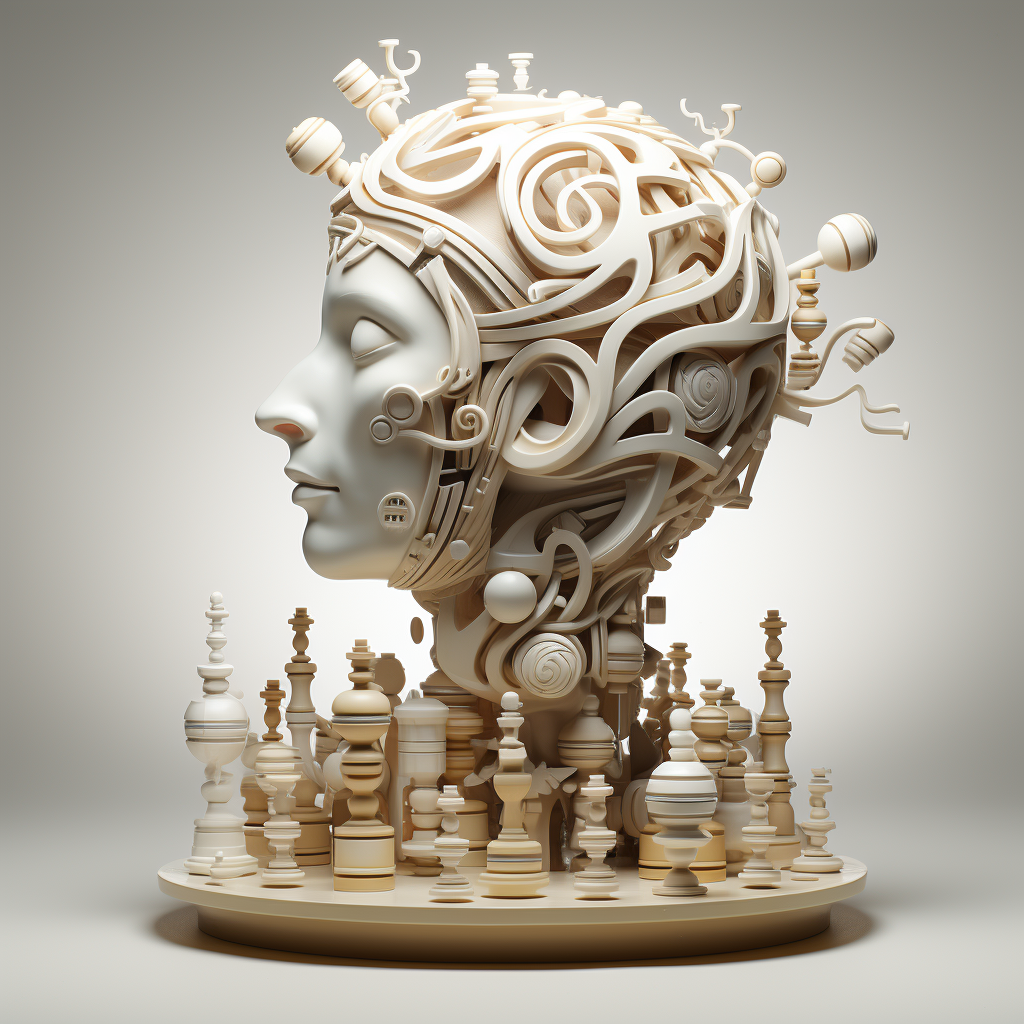

Mental Activity
“The brain is like a muscle; books are the diet and writing is the workout.” ― Stewart Stafford
Mental and spiritual activities are essential for maintaining both physical and mental health. Similar to muscles, the brain operates on a "use it or lose it" basis. Engaging in mental activities like puzzles, reading, or learning new skills can lead to physiological improvements in the brain due to its neuroplasticity. These activities not only enhance cognitive function but also contribute to inner peace, mental well-being, and the prevention of neurodegenerative diseases and dementia. Regular mental exercise is a key component in maintaining a healthy, active brain throughout life.

Meditation
Meditation, recognized as a valuable tool for mastering the mind, is effective in coping with stress, depression, and anxiety. It has evolved from ancient practices aimed at understanding life's mystical aspects to a modern relaxation and tranquility technique. Research, including over 600 studies, highlights its stress-reducing benefits, and experiments have shown its potential to "rewire" the brain.
Daily meditation, ranging from 10 to 20 minutes, can be adapted to individual needs and preferences, with various types like guided, mantra, and mindfulness meditation.

Reading
Reading for pleasure, whether it be fiction or non-fiction, has been scientifically shown to offer lasting physical and mental health benefits.
Research suggests that engaging in regular reading can actually change the brain, with fiction reading offering particularly significant benefits.
Studies have found that avid readers, those spending over 3.5 hours a week reading, may live longer than non-readers.
Furthermore, reading is recommended as part of a healthy sleep routine, with a preference for print books over screens due to the potential disruptive effects of screen light on sleep quality.

Journaling
Journaling has been shown to offer benefits like anxiety reduction and emotional regulation.

Creative Hobby
Engaging in a creative hobby can significantly enhance mental health and well-being. It's shown that creative activities, which produce a tangible result, are particularly effective in reducing stress and improving mood. Activities like painting, knitting, gardening, or woodworking not only offer satisfaction from seeing the end product but also can lead to a state of 'flow', providing deep fulfillment. Even very simple coloring, doodling and free drawing has been shown to improve self-perceptions of problem solving.

Creative Thinking
Creative thinking is the ability to generate new ideas and perspectives, enhancing problem-solving skills, authenticity, self-expression, and stress relief.
The American Psychological Association advises capturing new ideas, seeking challenging tasks, broadening knowledge, surrounding oneself with inspiration, sleeping on ideas, collaborating, spending time in nature, and cultivating happiness to foster creativity.
Tony Schwartz outlines four stages of creativity:
- Saturation - gathering relevant information,
- Incubation - reflecting on the information,
- Illumination - the 'Ah-ha' moment, and
- Verification - testing the idea.
These methods collectively contribute to a more creative and fulfilling life.

Brain-Stimulating Activities
Engaging in brain-stimulating activities like puzzles, chess, crosswords, and learning new languages or musical instruments, is crucial for cognitive health. These activities enhance memory, attention, reasoning skills, and cognitive reserve. They stimulate various brain circuits, offering benefits like improved creativity and executive functioning. Learning a new language or playing an instrument also provides social and cultural benefits, making them holistic exercises for brain health.

Contact with Nature
Reconnecting with nature is essential for mental and physical well-being. Modern lifestyles, especially in urban areas, often limit our exposure to nature. Regular contact with natural environments can evoke positive emotions, enhance creativity, and improve concentration. The American Psychological Association notes that nature contact boosts happiness and well-being, while Yale University emphasizes its necessity for physical health and cognitive function. Activities for reconnecting with nature include walking in parks, hiking, gardening, or even indoor activities like pot gardening and pet care. Pets, in particular, offer significant health benefits, including reduced stress and improved heart health.

Cultural Events
Regularly attending cultural events like museum exhibitions, theater, concerts, and ballet can significantly enhance emotional well-being by fostering a sense of connection, optimism, hope, self-esteem, and resilience. While physical attendance is ideal, virtual participation is a viable alternative. These events should be mentally stimulating to provide spiritual advancement. Planning ahead for such events, possibly in conjunction with travel, can enrich the experience. Additionally, attending symphony orchestra concerts offers the added benefit of the 'Mozart effect,' stimulating brain areas associated with high-level mental functions.

Casual Shopping
Shopping, often seen as retail therapy, can have psychological and therapeutic benefits, including mood enhancement, stress reduction, and improved mental fitness. While it's important to shop in moderation, even window shopping or online browsing can bring happiness. For the elderly, it can also serve as physical exercise and has been linked to a reduced risk of death. Besides its well-being aspects, shopping is essential for acquiring necessary items like clothes, shoes, and household essentials.

Life Coach
Coaching has been shown to be effective for enhancing well-being and mental fitness, guiding individuals through stages of mental health growth. Utilizing positive psychology, it can increase happiness and reduce depressive symptoms.
Professional life coach assists in setting and pursuing personal goals, especially beneficial during times of crisis or uncertainty. Alternatively, for budgetary concerns, an "accountability partner" can offer support and critical feedback.
Lifeflows for Mental Activities
-
1. PLAN IT
- Dedicate 30 minutes to plan your mental activities for the week.
- Incorporate various types.
-
2. BOOK IT
Add activities to your calendar.
-
3. DO IT!
It's often hard to prioritize hobbies over work or reading over caregiving, but engaging in mental activities will make you better on all other fronts.
Resources
-
Google Calendar for Mental Activities
Regular price $0.00 USDRegular priceUnit price / per -
Physical and Mental Activities Tracker
Regular price $0.00 USDRegular priceUnit price / per
Books
-
Column
Pair text with an image to focus on your chosen product, collection, or blog post. Add details on availability, style, or even provide a review.
-
Column
Pair text with an image to focus on your chosen product, collection, or blog post. Add details on availability, style, or even provide a review.
-
Column
Pair text with an image to focus on your chosen product, collection, or blog post. Add details on availability, style, or even provide a review.
Some links are affiliate links. This means that if you click through and make a purchase, we may earn a small commission at no additional cost to you.
Pick another health area to focus on
-
NUTRITION
Embrace a balanced diet to nurture optimal physical and mental health
-
WATER INTAKE
Emphasize the importance of adequate hydration, offering guidance on optimal water consumption to maintain bodily functions and overall well-being
-
PHYSICAL ACTIVITY
Integrate tailored exercise routines into daily life to enhance overall health, fitness, and well-being
-
SLEEP
Cultivate healthy sleep habits and routines to ensure restful, rejuvenating nights that contribute significantly to overall health and daily energy levels
-
HEALTH CHECKUPS
Prioritize regular health assessments and screenings to detect potential health issues early and maintain a proactive approach to personal health care
-
MEDICATIONS
Efficiently manage your medication needs, ensuring a well-stocked and up-to-date medicine cabinet for overall health and timely care


